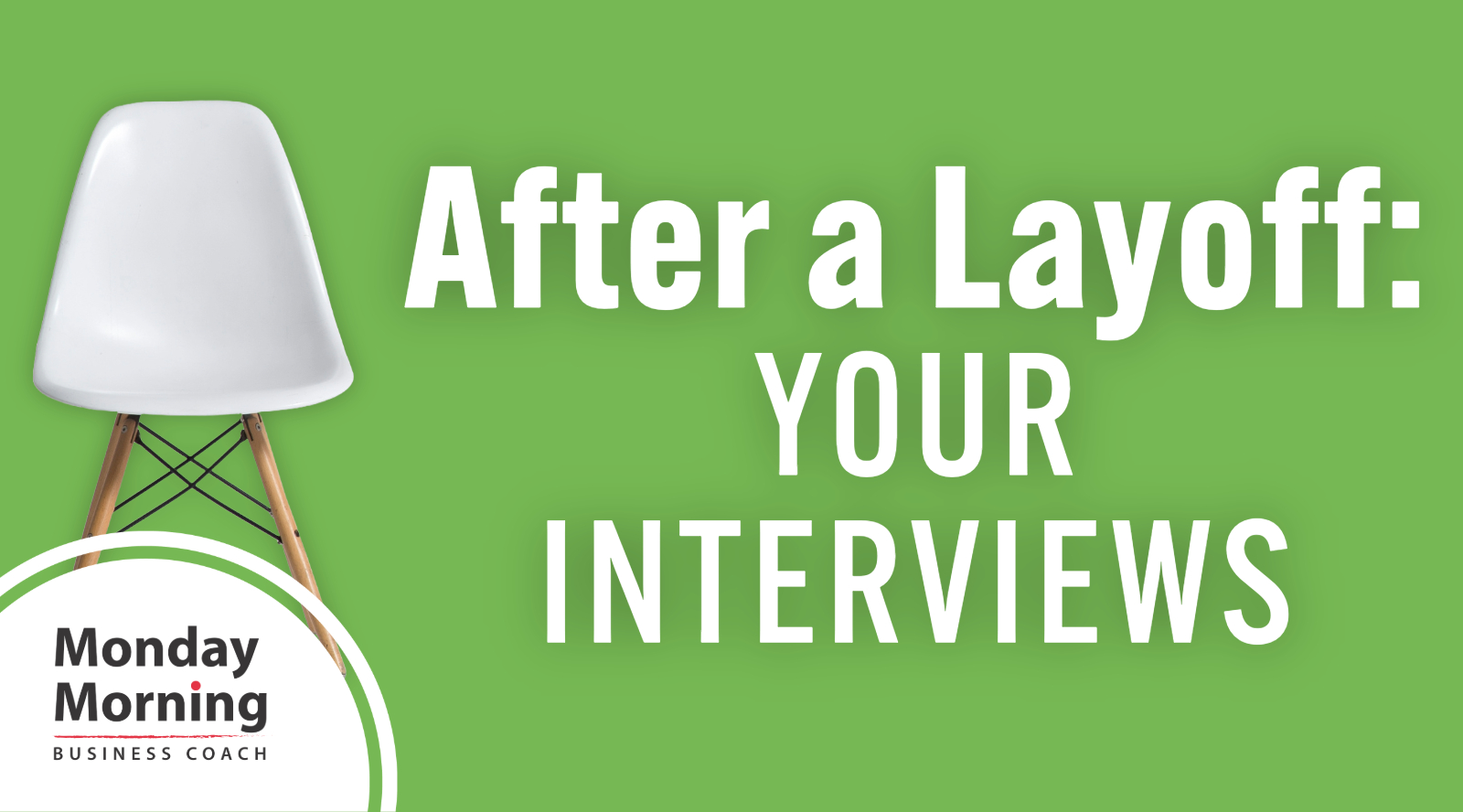In our recent layoff posts, we’ve been providing you with our best thinking about:
- creating your core criteria,
- crafting your stories,
- writing a winning cover letter and resume
- growing your network
Today, we want to share some best practices and strategies for interviewing well. As you read through these suggestions, consider what might support you in showing up to your interviews with excitement for the role, curiosity about their needs, and an openness to learn and share.
Practice, practice, practice!
Ask a friend or close colleague to do a mock interview with you. Pull from those top stories you’ve crafted, that have some combination of your:
- accomplishments
- experiences
- learnings
- challenges
- growth
Change your words.
It’s important to remember that the words we choose when we talk about ourselves, can change how engaging we are in an interview.
- Instead of: I’m great at…, switch to:
- I’m passionate about doing…
- The strengths I love using are…
- The best projects I’ve worked on have been when I could do…
- The work I love the most is…
- Instead of: My weaknesses are…, switch to:
- A challenge I’m working on…
- An area that I’m working on…
- A growth opportunity I’m working on…
- For me, opportunities for growth look like…
Pause.
If a question comes at you and you need a moment to think, it’s okay to Pause and take a breath.
- When you Pause, you could say something like, That’s a great question…let me think about that for a moment.
- Be careful not to use this more than once or twice in an interview.
Ask good questions.
Preparing thoughtful questions can further demonstrate your interest, as well as providing you with some additional insight about the fit of this job opportunity.
- If I’m wildly successful in the first 60 days, what will I have accomplished? How will I be measured?
- If I’m not doing the job quite as you’d hoped, how will I know that? What does feedback look like?
- What does a typical day or week look like for this role?
- When there are disagreements, how does the team handle those?
- What’s the method for big decisions and how are they communicated?
- What strategies have you found successful for sustaining employee motivation, engagement, and a healthy work/life balance?
- What do you love most about working here?
- What would you change if you could?
Follow-up.
Similar to your informational interviews, it’s important to follow-up immediately with a thank-you note.
- Write a 1-2 paragraph thank-you email. If you really want to stand out, consider sending a note in the mail as well.
- Remind them how you can be a solution to their needs.
- Provide any other specific positive feedback about your encounter (learnings, insights, a laugh, etc.).
Remember, the interview is just as much for you as it is for them.
You’re demonstrating that you can be a solution to their needs, AND, you’re gathering information to understand if it’s the right fit for you.
With that said, we realize that you may not have a choice in which job offer to accept. Perhaps going through these exercises will provide you with some additional insights on where and how you look for work, so that when you do get the offer, it’s a greater likelihood of being a good fit for you.
Whether you’re out of work because you needed to do so for your mental or physical health or you’ve been let go (for whatever reason) . . . it’s a difficult space to be in. AND, we know that hiring a career coach can be challenging on a tight budget.
To support you, we’ve put together various options, in hopes of fitting your needs.
Please contact us today if you’re interested in learning more about any of our free or paid options:
- free career content from our 13+ years of blog posts
- free career coaching video shorts by Heather
- low-cost career coaching video series
- 1:1 coaching options
If you’d like support
with next steps in your career,
contact us today.


